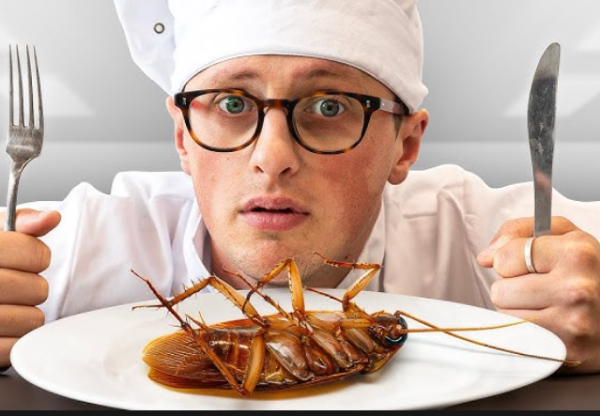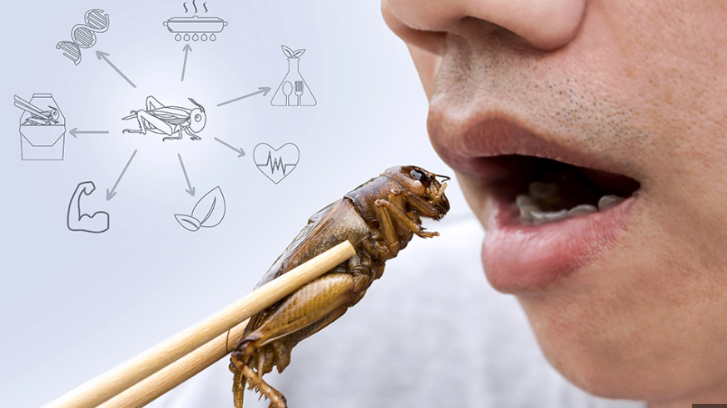Insects present a promising solution to the world’s growing demand for sustainable protein sources. With a rapidly increasing global population and the environmental strain caused by traditional livestock farming, exploring alternative protein sources is crucial. With livestock taking over 580 million acres in the United States alone, these small critters can not only be easier to take care of but also a more eco-friendly food source.
Benefits of Eating Insects:
Insects offer an impressive nutritional profile, but their production also has a significantly lower environmental impact compared to conventional meat sources. According to Cricket Flours, the bugs can contain many different nutrients like iron, zinc, and vitamin B12. Insect farming also requires substantially less land, water, and feed resources, making it a more sustainable and efficient option for meeting the world’s protein needs. They can be easily taken care of in labs or in other buildings. The idea of having millions of bugs stored in buildings is not new as they are commonly kept for animal food too. Remarkably, insects have up to 80% protein by weight which is much greater than any other source which includes pork, beef, and seafood. Furthermore, they are rich in energy-dense fats and essential micronutrients and minerals, providing a well-rounded nutritional profile. With their impressive nutrient density and sustainability, insects could emerge as a game-changer in addressing global food security challenges. As consumer attitudes gradually shift and regulatory frameworks adapt, insects could very well become a mainstream protein source, revolutionizing the way we perceive and consume food. However, embracing the culture of eating bugs can feel uncomfortable for many people. Insects could become a viable and sustainable source of protein for the future, offering a multitude of nutritional benefits.
Embracing Insect Consumption:
For millennia, our ancestors relied on insects as a vital source of sustenance, a practice deeply ingrained within ancient civilizations like Greece and Rome, where these delicacies were regarded as luxury treats. However, as humanity transitioned into an agricultural society, insects were seen as revolting creatures. The shift away from insect consumption was driven by a newfound perception of these creatures as pests, threatening the very crops we had begun to cultivate. Yet, in various places around the world (Cambodia, China, Africa) many people still eat bugs in their daily lives. Especially in Western cultures, the idea of consuming insects may evoke feelings of disgust and aversion. However, by educating the public about the numerous benefits of entomophagy, which means insect-eating, we can gradually shift perceptions and encourage its incorporation into our diets. One effective strategy is to introduce insects in familiar and palatable forms, such as cricket flour or protein bars, making them more approachable and appealing to the Western palate.
Max Fosh’s Experiment:

In a YouTube video made by the creator Max Fosh, he uses insects to make delicious food. He was able to give the food to unsuspecting guests to prove that the taste of insects wasn’t that bad. His experience taught him that eating insects isn’t necessarily bad but the culture he grew up in has really affected his ability to accept them as a suitable food source. In the video, his parents try to eat the critters without knowing what they truly are. Their surprise when finding out was not dramatic, they accepted the food to not be as bad as they expected when incorporated in real dishes.
Insects provide protein to many different places in the world and can be a great source of nutrition. As the Earth’s population has hit eight billion people, feeding everyone is a hard task to fulfill and insects might just be the key.








